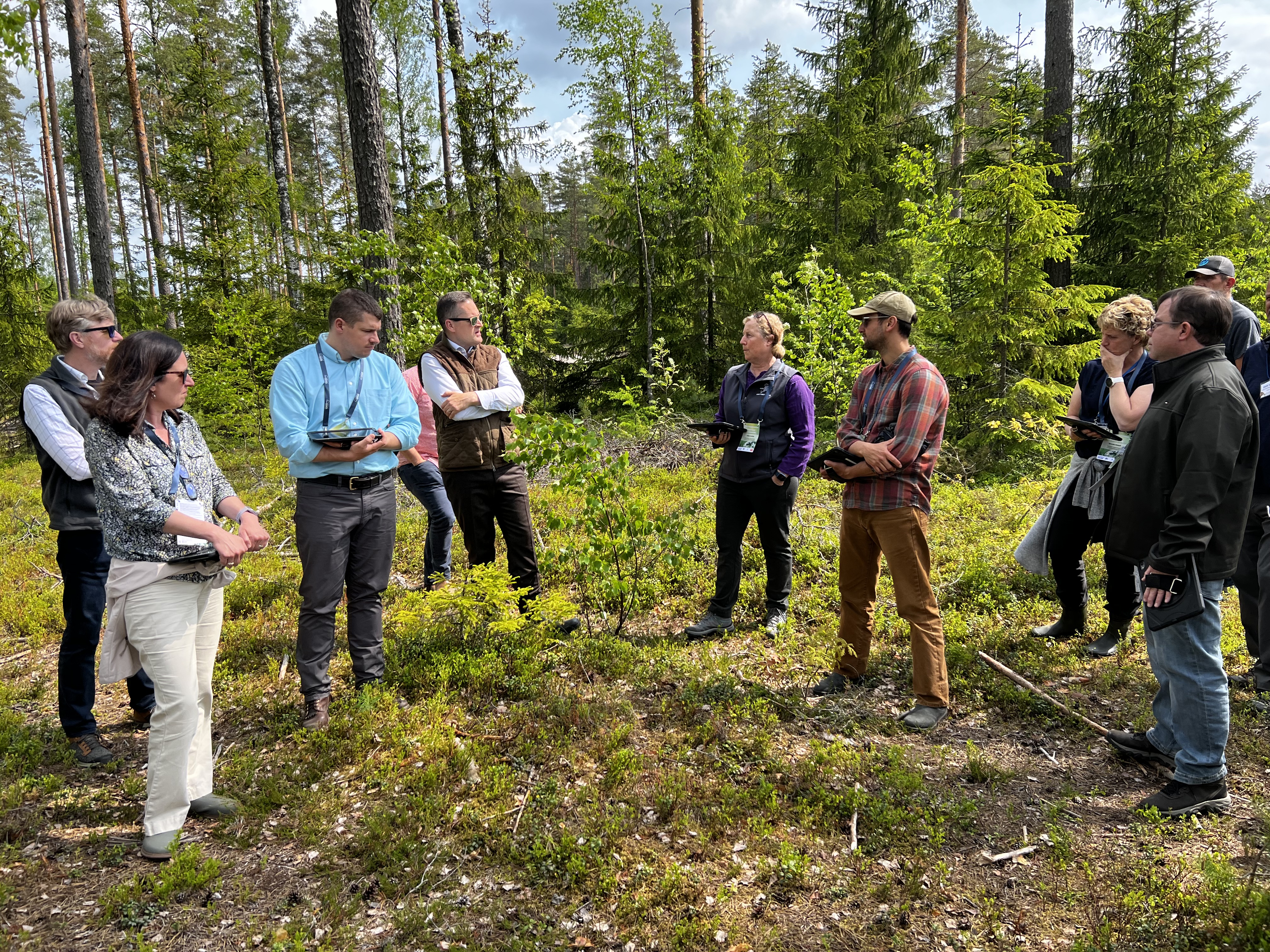Finland trip leads to partnerships at home and abroad

NRRI leaders join U.S. contingent on field trip to Finland to share, learn and collaborate.

NRRI leaders join U.S. contingent on field trip to Finland to share, learn and collaborate.
Forest management is an increasingly complex discipline that requires the balancing of economics and ecology in the face of changing markets and climate. Beyond providing lumber, pulp and other forest products, forests provide many additional goods and services that benefit society. These include sequestering carbon, providing habitat for wildlife, maintaining water quality and quantity and others.
NRRI's Mineral Characterization / Geometallurgy program is translational research, taking what we understand from our Economic Geology program and applying it to our Mineral Processing program. Geometallurgy combines geological, mining, metallurgical, environmental and economic information to maximize the value of mined materials while minimizing the risk. Geometallurgy seeks to understand the spatial distribution of relevant rock and mineral geologic properties and how that relates to extraction of commodity materials.
Research to utilize both incumbent and emergent technologies to separate valuable materials from our mineral resources with the least amount of water, energy, and environmental impact.
NRRI’s Metallurgy program focuses on Minnesota’s ore bodies to understand the most optimal process for extracting metals for a variety of iron products, from pellets to briquettes. NRRI can fully replicate taconite mine pelletization processes on a pilot scale to develop efficiencies and improved products.
NRRI utilizes two pilot-scale metallurgical processes: